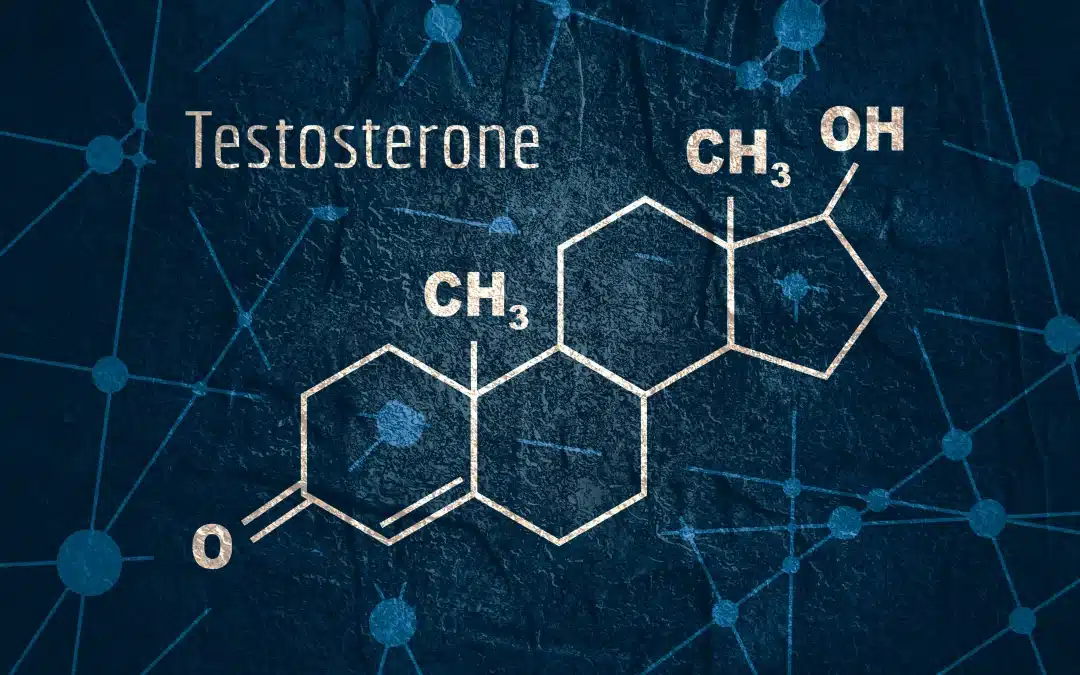Eating disorders are multifaceted illnesses that can profoundly affect an individual’s physical and mental well-being. They are often characterized by distorted eating patterns, unhealthy relationships with food, and disturbances in body image perception. While the causes of eating disorders are multifactorial, involving genetic, psychological, and environmental factors, recent research has unveiled the potential role the gut microbiome could play in their development and progression [1,2].
The gut microbiome is a vast and intricate ecosystem comprising trillions of microorganisms, primarily bacteria, that reside within our digestive tract. This intricate community of microbes plays a crucial role in various physiological processes, including digestion, nutrient absorption, and immune function. However, its influence extends far beyond the gut, impacting various aspects of our health, including mental well-being.
Understanding the Influence of the Gut Microbiome on Eating Disorders
The connection between the gut microbiome and eating disorders is multifaceted and complex, with various mechanisms at play. One of the primary pathways through which the gut microbiome can influence eating disorders is through its impact on the gut-brain axis [1,2].
The gut-brain axis is a bidirectional communication pathway that links the central nervous system with the gastrointestinal tract. This intricate network involves various signaling molecules, neurotransmitters, and immune mediators that facilitate communication between the gut and the brain. Disruptions in this delicate balance can contribute to the development and exacerbation of eating disorders.
Numerous studies have explored the relationship between the gut microbiome and various eating disorders, including anorexia nervosa, bulimia nervosa, and binge eating disorder [1-3]. These investigations have revealed significant differences in the gut microbiome composition of individuals with eating disorders compared to healthy individuals.
In individuals with anorexia nervosa, research has shown a distinct gut microbiome profile characterized by reduced diversity and an overabundance of certain bacterial species [3]. This dysbiosis has been associated with increased levels of anxiety, depression, and obsessive-compulsive behaviors, all of which are common comorbidities in anorexia nervosa.
Similarly, individuals with bulimia nervosa and binge eating disorder have exhibited alterations in their gut microbiome composition, with a higher prevalence of certain bacterial species linked to inflammation and metabolic dysregulation [1]. These imbalances may contribute to the psychological and physiological aspects of these disorders, such as emotional dysregulation, impulsivity, and metabolic disturbances.
It is important to note that the relationship between the gut microbiome and eating disorders is bidirectional. While dysbiosis can contribute to the development and exacerbation of eating disorders, abnormal eating patterns and associated behaviors can also disrupt the gut microbiome, creating a vicious cycle that perpetuates the condition.
Exploring the Role of Probiotics in Treating Eating Disorders
Given the profound impact of the gut microbiome on eating disorders, researchers have explored the potential of probiotics as an adjunctive therapeutic approach. Probiotics are live microorganisms that, when consumed in adequate amounts, can confer health benefits by modulating the gut microbiome and supporting overall gut health.
Several studies have investigated the efficacy of probiotic supplementation in individuals with eating disorders, with promising results. Probiotic interventions have been shown to improve gut barrier function, reduce inflammation, and modulate neurotransmitter levels, potentially alleviating some of the psychological and physiological symptoms associated with eating disorders. Additionally, probiotics may play a role in regulating appetite and satiety signals, which can be particularly beneficial for individuals struggling with binge eating or restrictive eating patterns.
However, it is crucial to note that probiotic interventions should be considered as a complementary approach to traditional therapies for eating disorders, such as cognitive-behavioral therapy, nutritional counseling, and medical supervision. A holistic and multidisciplinary approach is often necessary for effective treatment and recovery.
Therapy Approaches for Eating Disorders and the Gut Microbiome
While the gut microbiome has gained significant attention in the context of eating disorders, it is essential to recognize that traditional therapeutic approaches remain the cornerstone of treatment. Cognitive-behavioral therapy (CBT), family-based therapy, and nutritional counseling are well-established interventions that address the psychological, behavioral, and nutritional aspects of eating disorders.
However, integrating gut microbiome considerations into these existing therapies can potentially enhance their effectiveness and promote a more comprehensive approach to recovery. For instance, incorporating gut health education, dietary modifications, and probiotic supplementation into traditional therapies may help address the gut-brain axis imbalances and support overall well-being [1].
Psychotherapists and healthcare professionals can collaborate with dietitians and nutritionists to develop personalized treatment plans that address both the psychological and physiological aspects of eating disorders, taking into account the individual’s gut microbiome profile and nutritional needs.
Lifestyle Changes to Improve Gut Health and Aid in Eating Disorder Recovery
In addition to therapeutic interventions, adopting a gut-friendly lifestyle can play a crucial role in supporting overall gut health and aiding in the recovery process for individuals with eating disorders. Here are some practical strategies to consider:
- Dietary Modifications: Incorporating a diverse range of fiber-rich foods, such as fruits, vegetables, whole grains, and legumes, can promote a healthy gut microbiome. Additionally, limiting processed foods, added sugars, and excessive saturated fats can help reduce inflammation and support gut health.
- Stress Management: Chronic stress can disrupt the gut microbiome and exacerbate eating disorder symptoms. Incorporating stress-reducing techniques like mindfulness meditation, yoga, or deep breathing exercises can help regulate the gut-brain axis and promote overall well-being.
- Regular Exercise: Moderate physical activity has been shown to positively impact the gut microbiome and support mental health. However, it is crucial to approach exercise in a balanced and healthy manner, avoiding excessive or compulsive behaviors that could exacerbate eating disorder symptoms.
- Adequate Sleep: Prioritizing quality sleep is essential for gut health and overall well-being.
- Hydration: Staying adequately hydrated by consuming sufficient water and fluids can support digestion, nutrient absorption, and the overall function of the gut microbiome.
It is important to note that these lifestyle changes should be implemented gradually and under the guidance of healthcare professionals, as individuals with eating disorders may require specialized support and monitoring during the recovery process.
The Future of Gut Microbiome Research and Eating Disorders
The exploration of the gut microbiome’s impact on eating disorders is a rapidly evolving field, with ongoing research and scientific discoveries shedding new light on this intricate relationship [1]. As our understanding deepens, we can anticipate several exciting developments:
- Personalized Microbiome-Based Interventions: With advancements in microbiome analysis techniques, researchers may be able to develop personalized treatment approaches tailored to an individual’s unique gut microbiome profile, optimizing the effectiveness of interventions.
- Microbiome-Based Biomarkers: Identifying specific gut microbiome signatures or biomarkers associated with eating disorders could aid in early detection, monitoring, and targeted treatment strategies.
- Gut-Brain Axis Modulation: Further exploration of the gut-brain axis and its role in eating disorders may lead to novel therapeutic approaches targeting this bidirectional communication pathway, potentially enhancing treatment outcomes.
- Preventive Strategies: With a deeper understanding of the gut microbiome’s role in the development of eating disorders, researchers may explore preventive strategies targeting gut health from an early age, potentially reducing the risk of developing these conditions.
As this field continues to evolve, interdisciplinary collaborations between mental health professionals, gastroenterologists, nutritionists, and microbiome researchers will be crucial in advancing our knowledge and translating scientific discoveries into effective clinical interventions.
Final Thoughts
The intricate relationship between the gut microbiome and eating disorders has opened a new frontier in our understanding of these complex conditions. By recognizing the profound impact of the gut on mental health, we can embrace a more holistic and integrative approach to eating disorder treatment.
While traditional therapies remain essential, incorporating gut health considerations and interventions can potentially enhance the effectiveness of existing treatments and support overall well-being. By addressing the gut-brain axis imbalances, promoting a diverse and balanced gut microbiome, and adopting a gut-friendly lifestyle, individuals with eating disorders may find a path towards sustainable recovery and improved quality of life.
However, it is crucial to approach gut microbiome interventions as complementary to traditional therapies and under the guidance of healthcare professionals. A multidisciplinary team approach, involving psychotherapists, nutritionists, gastroenterologists, and other specialists, can ensure a comprehensive and personalized treatment plan tailored to each individual’s unique needs.
Sources
[1] Terry, S.M., Barnett, J.A. & Gibson, D.L. (2022). A critical analysis of eating disorders and the gut microbiome. J Eat Disord 10, 154. https://doi.org/10.1186/s40337-022-00681-z
[2] Glenny, E. M., Bulik-Sullivan, E. C., Tang, Q., Bulik, C. M., & Carroll, I. M. (2017). Eating Disorders and the Intestinal Microbiota: Mechanisms of Energy Homeostasis and Behavioral Influence. Current psychiatry reports, 19(8), 51. https://doi.org/10.1007/s11920-017-0797-3
[3] Fan, Y., Støving, R.K., Berreira Ibraim, S. et al. (2023). The gut microbiota contributes to the pathogenesis of anorexia nervosa in humans and mice. Nat Microbiol 8, 787–802. https://doi.org/10.1038/s41564-023-01355-5
https://www.the-scientist.com/gut-bacteria-contribute-to-anorexia-71094
https://withinhealth.com/learn/articles/gut-brain-connection
https://www.eatingdisorderhope.com/blog/the-role-of-gut-health-in-eating-disorders








